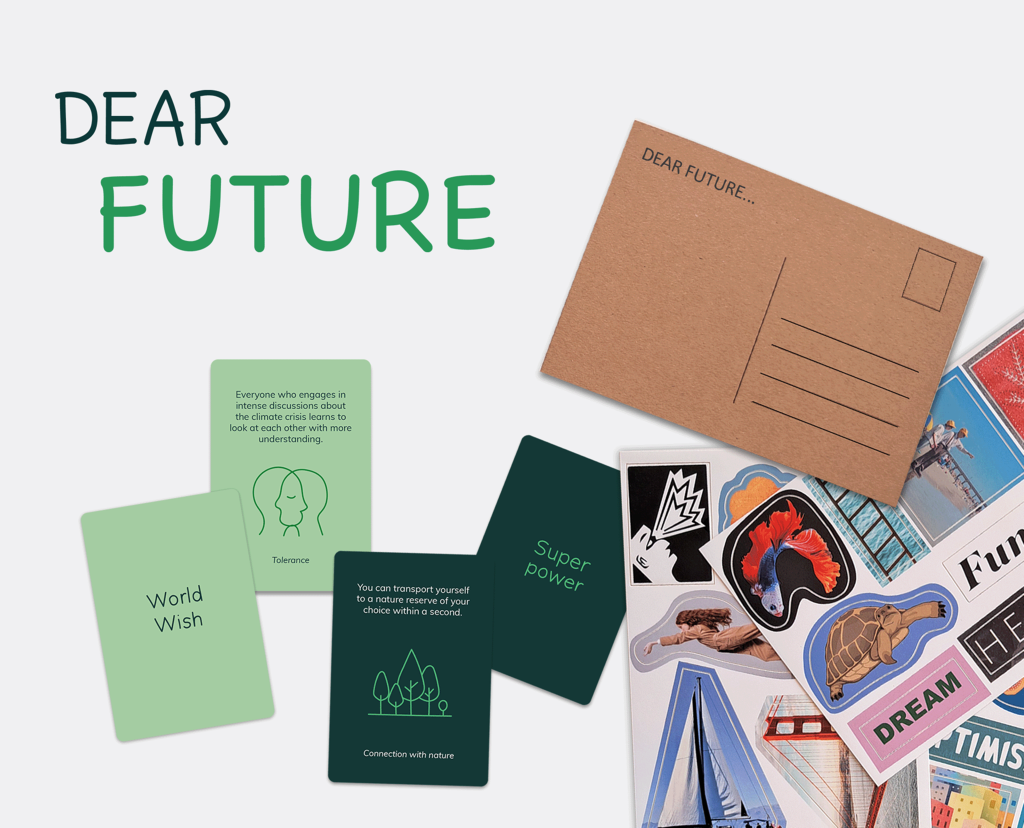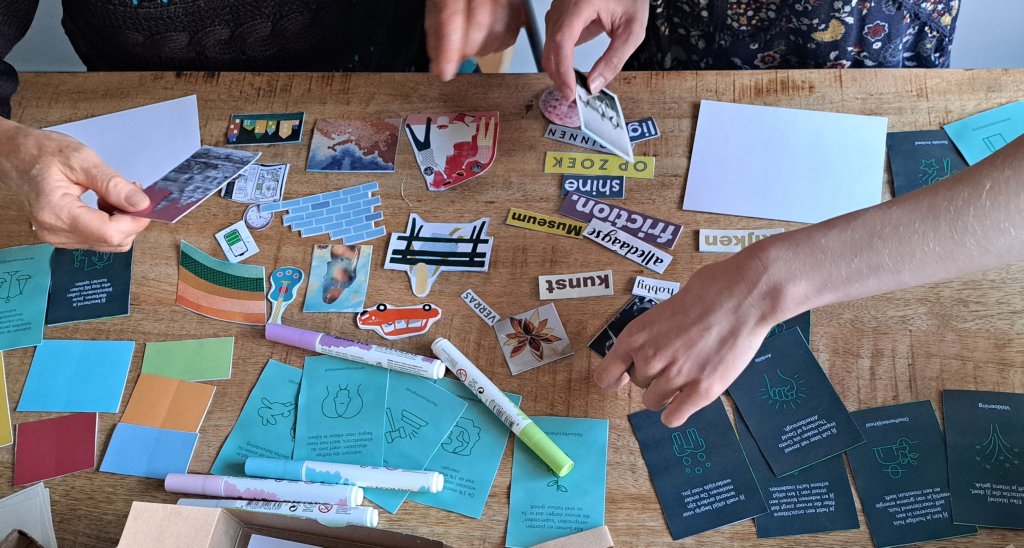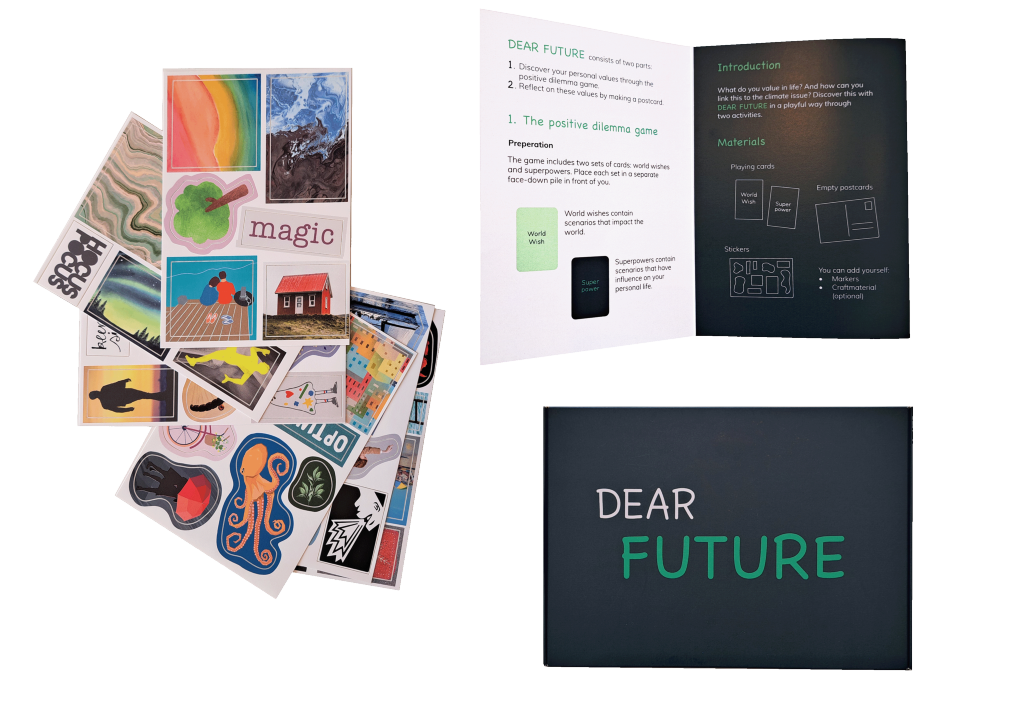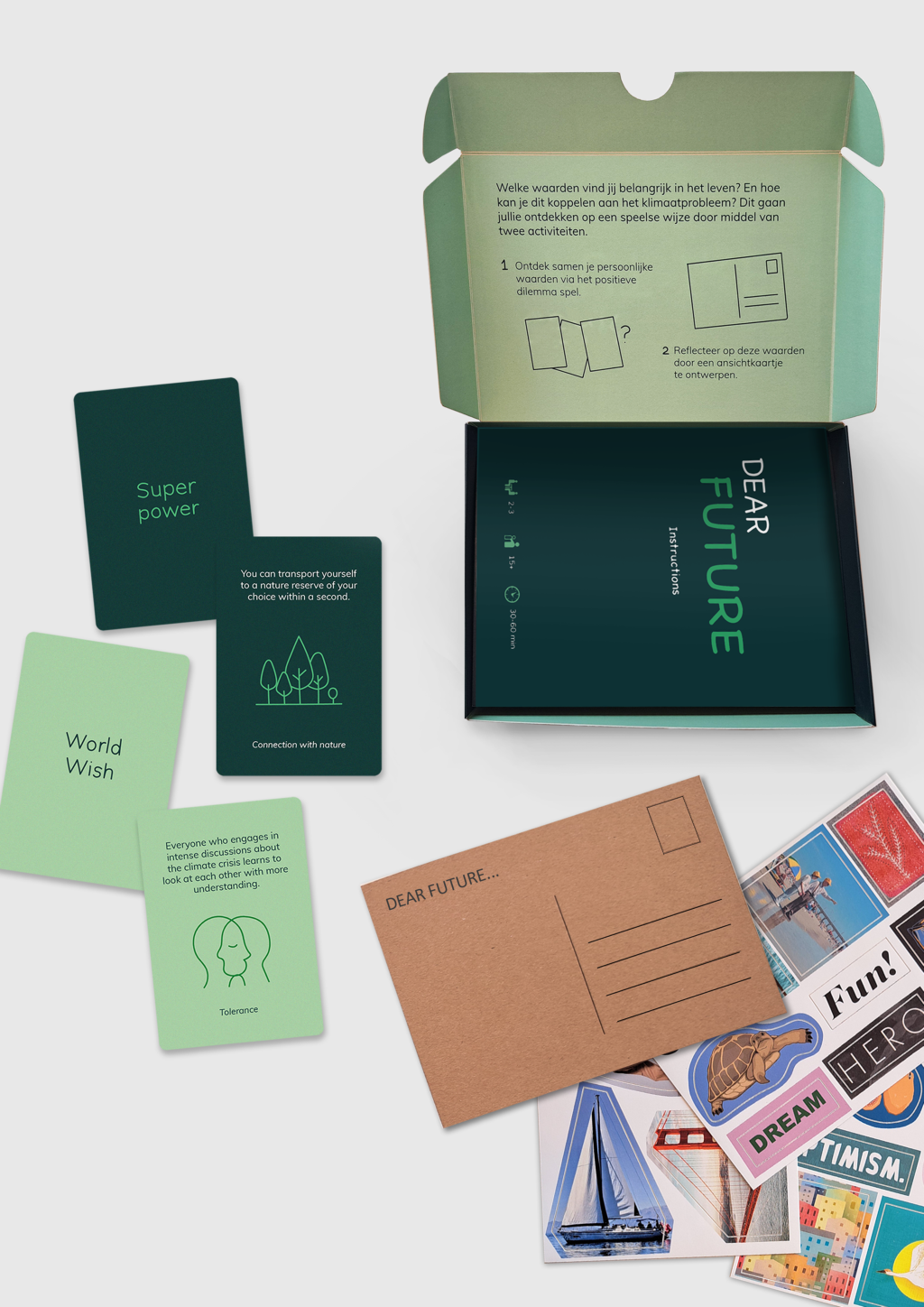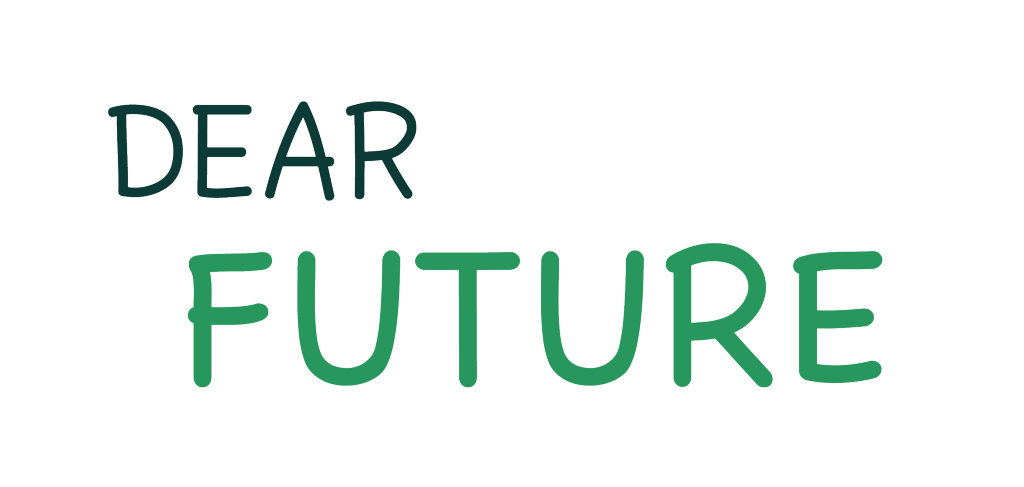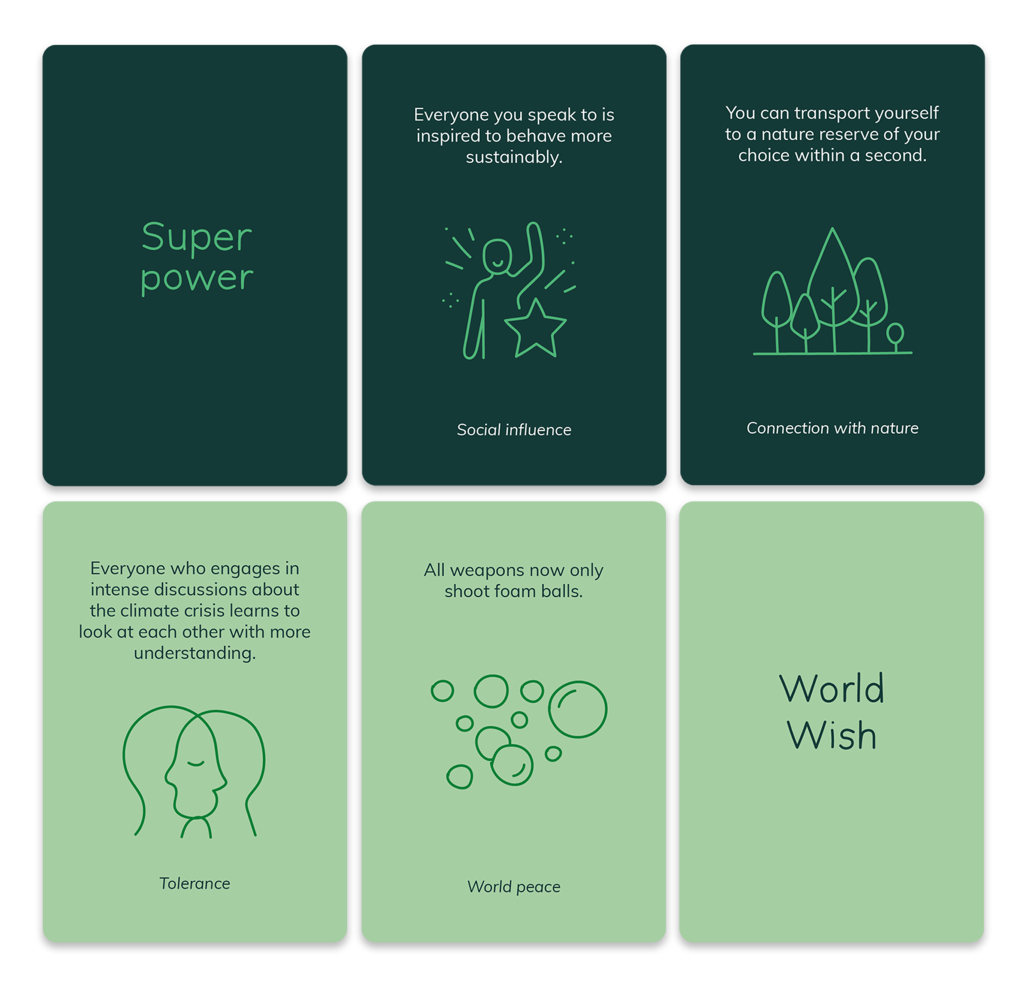Isa Jorritsma, Ir. J.I.J.C. (Jotte) de Koning, Z. (Zhuochao) Peng
Recent research by Hickman (2021) reveals that more than half of the world's young people are extremely worried about climate change. This eco-anxiety is characterised by negative emotions due to the awareness of growing climate risks and environmental threats. When someone experiences eco-anxiety, it affects their mental health, often causing issues with sleep, work or socialising. There's a lack of interventions to help young people manage eco-anxiety and be integrated in their daily lives. In collaboration with the Ministry of Health, Welfare, and Sport, we developed a design intervention to help Dutch youngsters aged 15-21 cope with eco-anxiety in their daily lives.
The project resulted in Dear Future: a meaning-focused coping game to empower youth experiencing eco-anxiety. It encourages youth to foster positive eco-emotions by together discussing personal values related to climate change. Since personal values can sometimes be quite abstract, youth are asked to visually reflect on their two most important values by crafting a postcard. This postcard captures the experience in a tangible form, serving as a positive memory.
To develop Dear Future, we conducted a literature review and a mixed-method study to gain a better understanding of the context of eco-anxiety among youth. This resulted in two findings that we based Dear Future on: (1) young people find it important to stay positive about climate change and (2) feeling socially connected to other environmentally conscious people helps in coping with eco-anxiety.
When facing large and complex issues like climate change, it's mentally healthier to base actions on personal values rather than solely focusing on solving the problem. Individual sustainable actions might not be reflected in the overall CO2 emissions data, which can feel discouraging. However, when young people act according to what they believe is morally right and important, they build on their intrinsic motivation. This form of motivation is much more stable and powerful, especially when it can be shared with like-minded people.
Dear Future aims to prevent eco-anxiety from negatively affecting young people's mental health. During participant test sessions, many positive eco-emotions arose, like feeling hopeful, interested and motivated. However, further research is needed to discover the long-term effects of Dear Future.




